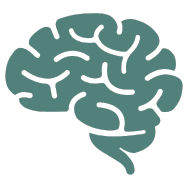Why Therapy?
We all have a “suitcase” full of experiences that shape our behaviors and how we respond to the world around us. Experiences that are connected to our emotions, our thoughts, and our reactions to others.
Sometimes these experiences cloud healthy responses and behaviors and instead create unhealthy or unregulated emotions in response to our challenges in everyday life.
This is why therapy with a trusted therapist can play an important role. It can be a safe place for you to unpack this “baggage” by learning to identify and change troubling emotions, thoughts and behaviors.
My goal is to help you learn to “sit in the uncomfortable” and learn to lower your levels of anxiety and increase your level of contentment. I can help guide you through past trauma, grief and help you learn to face your fears in a safe space of tolerance and acceptance.
In order for therapy to be most successful, it is important for you to take an active role in the process. This means working on the skills taught during our sessions and completing any “homework” outside of session that I may suggest to you. The more of yourself you are willing to invest, the greater the return.
Conditions Treated

-
Life Transitions
-
Family Conflict
-
Grief/Loss
-
Trauma/PTSD
-
Anxiety
-
OCD
-
ADHD
-
Emotional Regulation
-
Depression
-
Suicide Ideation
-
Parenting Support
-
Self-Harm Behaviors
Methodologies Used

Cognitive Behavior Therapy
Cognitive Behavioral Therapy (CBT) is a practical, goal-oriented approach that helps you identify and reframe negative thought patterns. By understanding the connection between your thoughts, feelings, and behaviors, I can help you develop healthier ways to respond to life’s challenges.

Dialectic Behavioral Therapy (DBT)
Dialectical Behavioral Therapy (DBT) focuses on building skills to manage intense emotions, improve relationships, and practice mindfulness. I can help you develop tools like emotional regulation, distress tolerance, and effective communication to create a more balanced life.

Exposure Response Prevention (ERP)
Exposure Response Prevention (ERP) is a structured approach to reducing anxiety tied to specific fears or obsessive thoughts. I guide you through gradually facing these triggers in a safe and supportive way, helping you build confidence and regain control.

Play Therapy – Directive and Non-Directive
Play Therapy uses the power of play to help children express emotions and work through challenges. In Directive Play Therapy, I guide the session with specific activities to address goals, while Non-Directive Play Therapy allows the child to lead, fostering a sense of safety and self-expression.

Acceptance and Commitment Theory (ACT)
Acceptance and Commitment Therapy (ACT) helps you embrace your thoughts and feelings rather than fighting them. I work with you to clarify your values, develop mindfulness skills, and take meaningful actions toward a fulfilling life.

